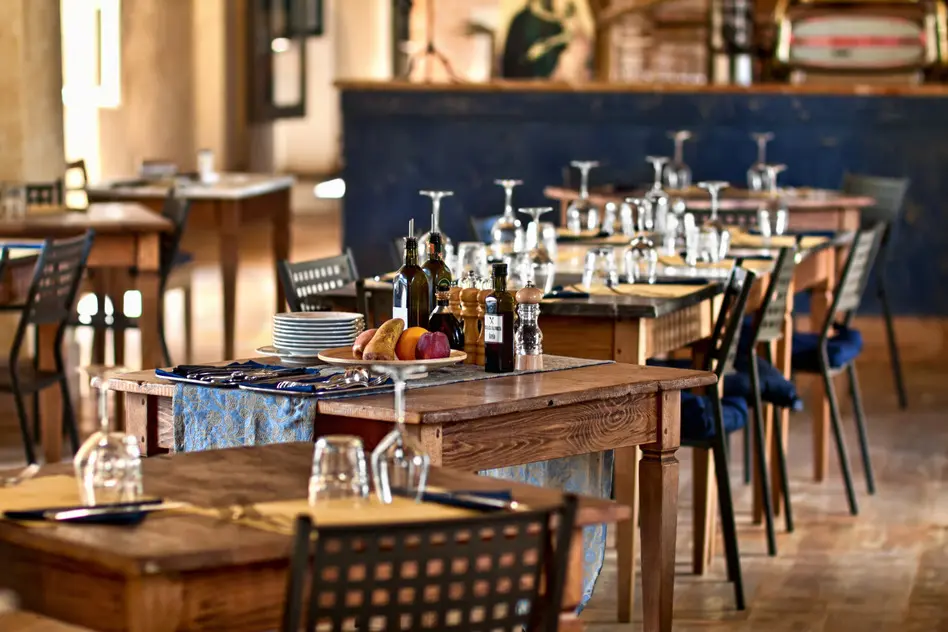This article provides guidelines on some of the vital insurance policies for restaurants and covers them in a systematic manner so that the owners can formulate business strategies that will help them secure their assets and provide decent returns. To operate a restaurant is to face particular risks that need insurance coverage. Consider the prevention of food-borne illnesses and incidents involving employees or customers as just two of the many risk’s restaurants have to encounter on a daily basis.
Business Insurance for Restaurants in a Nutshell
The nature of the restaurant industry is such that owners are constantly under pressure from customers and the management as well. It is safe to assume that customers will always defile a restaurant in one way or another quality standard and so there is certain risk in running a business. However, business insurance will help calm the economic turmoil. Here’s a look at the basics:
- Firstly, all insurance policies will help alleviate loss from accident, assets destruction or lawsuits.
- Secondly, you will find that most business policies are designed for profit making entities, such as restaurants.
Key Insurance Policies Every Restaurant Should Have
1. General Liability Insurance: As mentioned above, General Liability Insurance helps protect against such simple and basic risks as injury to a customer, destruction of property and cost of litigation etc.
A few of them include:
- Auto accidents that may occur resulting in slip-and-falls
- Food poisoning
- Accidental vomit
The importance of this insurance: it is obvious that a restaurant, through its nature, will have a lot of customers and increase the chances of liability claims. This policy saves the insured a lot in case of substantial claims as they do not have to pay out of pocket.
2. Commercial Property Insurance: The importance of these physical assets to a restaurant owners cannot be ignored, which is why they need protection.
Commercial property insurance will reimburse you for expenses incurred due to the loss of your assets, including but not limited to fire, burglary and catastrophic weather.
Covered items: Building structure Equipment and appliances Furniture and décor Benefits: One of the benefits is that it allows the quick recovery of the possessions after the incident thus reducing Spain’s downtimes and potential loss.
3. Workers’ Compensation Insurance: Students enrolled in culinary schools or any educational institutions to learn culinary skills are motivated by getting trained rather than simply working. The term ‘working’ implies earning a livelihood which consists of different executive and manual operations.
In this particular area, there is an increased level of dependence on workers ranging from cooks to waiters who may undergo injuries that in one way or another relate to their job. Because of such situations, there are certain trained workers who may sustain job-related injuries, and many states have made Workers’ Compensation Insurance a necessity.
Coverage:
• The payment of medical fees and expenses arising from treatment of the injured employee.
• The lost income of the employee during the period of recovery.
• If an employee files for any civil case, the payment of legal costs connected to the case.
Why it matters: Provides workforce protection and ensures that entities comply with laws in the states pertaining to them.
Specialized Policies for Restaurants
4. Liquor Liability Insurance: As a consequence of evolution or of opening circumstances of any particular instant periods, it becomes constantly to serve behind the active-duty restaurant companies are developing fast across the globe. With most restaurants making the better part of their revenue from the sale of alcohol beverages, one type of insurance that should be on your checklist is liquor liability. With the interest in the United States growing, one with the intention of opening up or owning a restaurant should take on liquor liability insurance, due to the risk of lawsuits arising from alcohol-related injuries.
87qs: If you decide to serve alcohol some states with strong laws will require this policy.
5. Business Interruption Insurance: Under no circumstances can one be ready enough for a natural disaster as it is not within the control of man. It would also be safe to generalize that most times restaurant owners get into the domes either during or after a natural disaster only to witness the destruction of infrastructure within the boundaries of the restaurant domain. That is why Business Interruption Insurance was synchronized to cover lost revenues that may arise as result of a recession. Below are some of key benefits of the Chicago business interruption insurance.
Key benefits:
• The rest of the years of business operation without a loss making are covered to pay rent, payrolls, and utilities.
• Provide attention to self-administration on working-close to provide enough financial resources when a recession period comes.
• Real life example: A number of restaurants heavily relied on this policy as one of the measures during the lock down because of the coronavirus pandemic.
Common Restaurant Insurance Costs
By learning the costs related to different types of insurances, any owner of the restaurant can draft an appropriate budget.
| Type of Insurance | Average Annual Cost | Key Determinants |
|---|---|---|
| General Liability Insurance | $500 – $3,000 | Location, claims history, restaurant size |
| Commercial Property Insurance | $1,000 – $5,000 | Property value, risk exposure |
| Workers’ Compensation Insurance | $1,500 – $10,000 | Employee count, job risks |
| Liquor Liability Insurance | $500 – $2,500 | Alcohol sales volume, state laws |
Working with Restaurant Insurance Brokers
1. Why Hire a Broker?
Insurance brokers work to link restaurants with specific policies designed for their needs. They know what is needed and how to make sure that everything is done in a complete manner.
Advantages:
- Compiled tailored policy alternatives
- Affordable rates
- Help in claim management
2. Choosing The Broker Who Is Right For You
In choosing a broker, check how long they have been in the restaurant business. Check for feedbacks, professional credentials, and knowledge of the state’s ins and outs.
- Exploring Insure on for Restaurant Insurance
- Insure on is an online service portal that makes purchasing insurance for restaurants easier for the users.
Features:
- Comparing quotes from various companies is simple
- Ability to see different insurers
- Advisory for small businesses
Why it’s popular: Economical and user friendly for businesspeople who are looking for efficient and simple coverage for their restaurants.
Avoiding Common Insurance Pitfalls
1. Error of Omission of Liquor Liability: Liquor Liability Insurance is one of the most common mistakes made by many as many bars wait for unnecessary reasons. This might prove to be a costly lapse should alcohol related claims occur.
2. Error of Omission for Unreasonably Low Policies: Many buyers may think an error of omission to buy high coverage policies is just a cost. However, doing so may expose the business during a major event.
Pro Tip: Polices should be revised and amended regularly to show any growth, or any changes in the operations of the business.
3. Not Leveraging Broker Skills: Some owners do not use brokers as they wish to save money but in reality, the miss opportunities or advice which may assist in ensuring the risk of being underinsured is minimized.

The Benefits of Comprehensive Business Insurance
The set of strong insurance policies is a good investment for a number of reasons:
| Advantages | Description |
|---|---|
| Financial Protection | Covers losses from property damage, lawsuits, or business interruptions |
| Compliance | Meets legal requirements, avoiding fines and penalties |
| Business Continuity | Minimizes disruptions, ensuring smooth operations post-incident |
| Improved Credibility | Builds trust with customers, employees, and partners |







